Complete Solutions to LINKED COMPREHENSION Passage 1 of chapter ALCOHOLS, PHENOLS AND ETHERS of Class 12 book with complete answers and questions
| Class 12 | CHEMISTRY |
| Chapter | ALCOHOLS, PHENOLS AND ETHERS |
| OP TANDON | LINKED COMPREHENSION Passage 1 |
| Number Of Questions | 5 |
| Academic Year | 2023-24 |
A reaction characteristic of vicinal diols is their oxidative cleavage on treatment with periodic acid `(HIO_(4))`. The carbon-carbon bond of the vicinal diol uinit is broken and two carbonyl groups result. Periodic acid is reduced to iodic acid `(HIO_(3))`
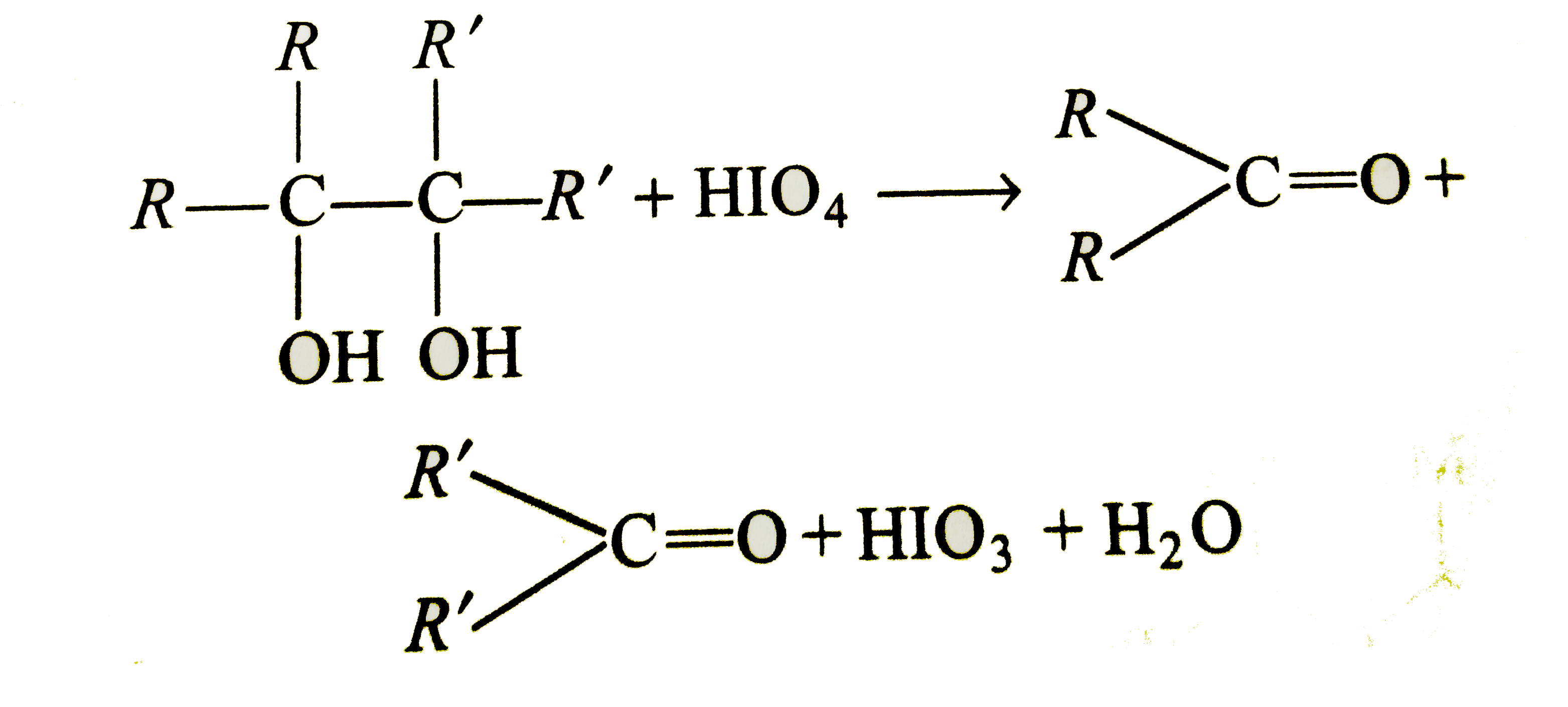
Cyclic diols react to give dicarbonyl compounds. The reactions are faster when the hydroxyl gorups are cid than when they are trans but both stereoisomers are oxidised by periodic acid. Periodic acid cleavage of vicinal diols is often used for analytic purposes as an aid in structure determination. By identifying the carbonyl compounds produced, The constitution of the diol may be deduced.
Which of the following compounds (s) is / are obtained when the following compound is oxidixed by `HIO_(4)` ?
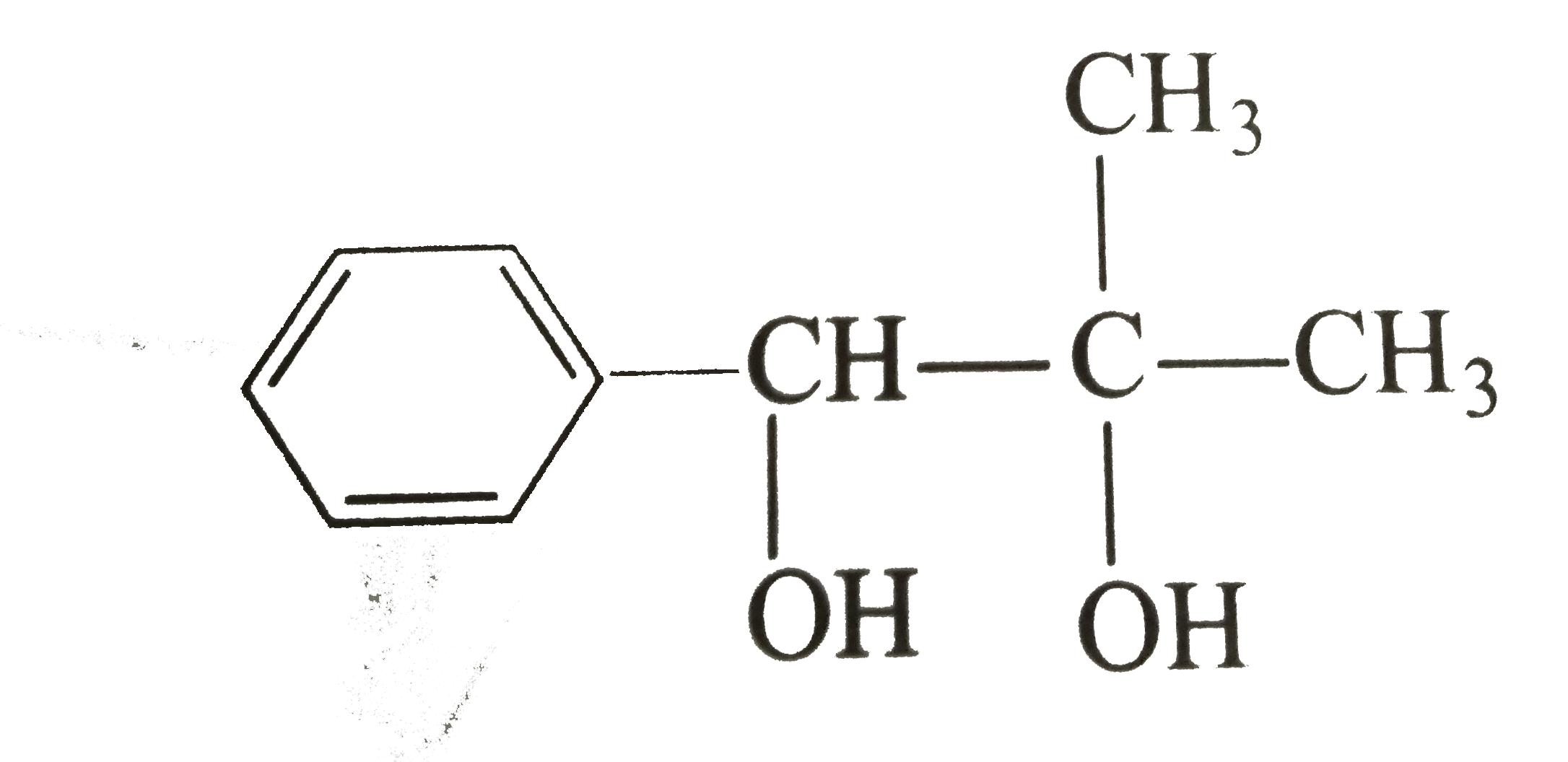
View SolutionA reaction characteristic of vicinal diols is their oxidative cleavage on treatment with periodic acid `(HIO_(4))`. The carbon-carbon bond of the vicinal diol uinit is broken and two carbonyl groups result. Periodic acid is reduced to iodic acid `(HIO_(3))`
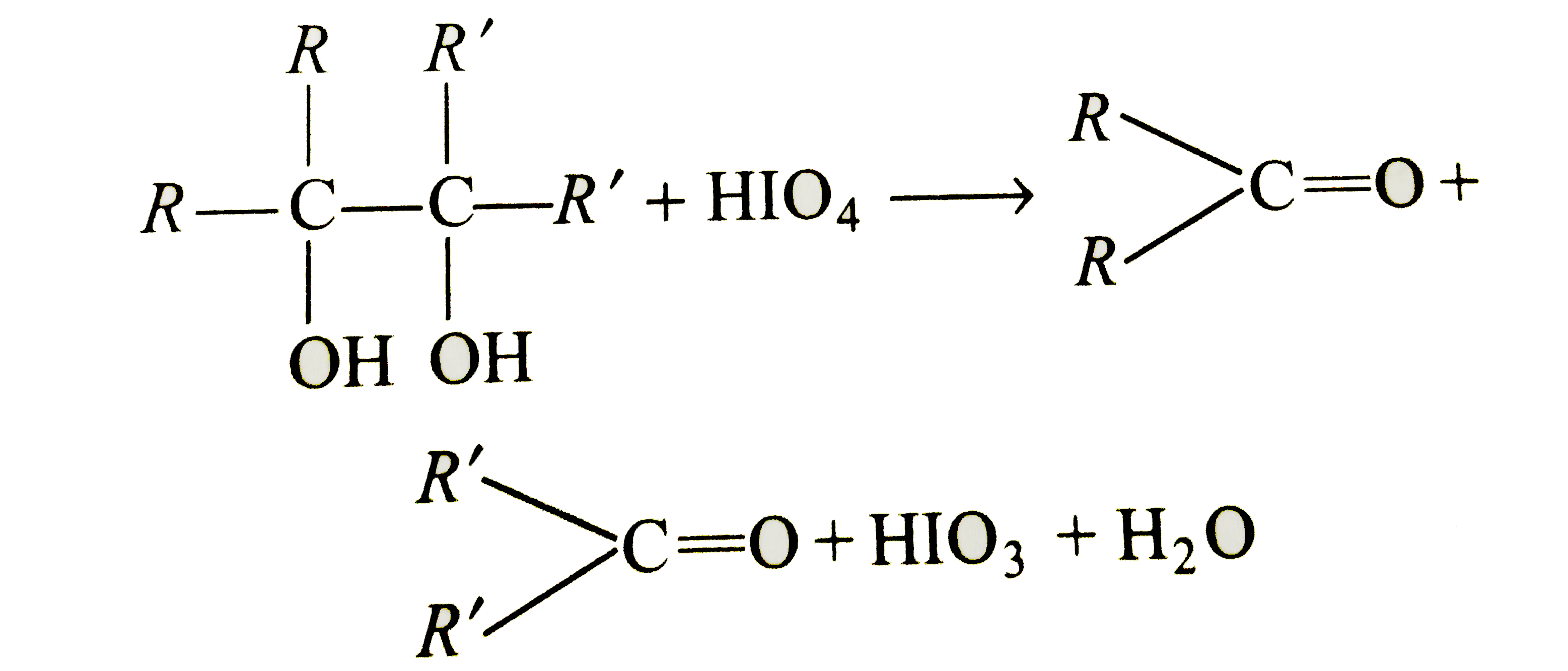
Cyclic diols react to give dicarbonyl compounds. The reactions are faster when the hydroxyl gorups are cid than when they are trans but both stereoisomers are oxidised by periodic acid. Periodic acid cleavage of vicinal diols is often used for analytic purposes as an aid in structure determination. By identifying the carbonyl compounds produced, The constitution of the diol may be deduced.

The compound 'X' in above reaction is `:`
View SolutionA reaction characteristic of vicinal diols is their oxidative cleavage on treatment with periodic acid `(HIO_(4))`. The carbon-carbon bond of the vicinal diol uinit is broken and two carbonyl groups result. Periodic acid is reduced to iodic acid `(HIO_(3))`
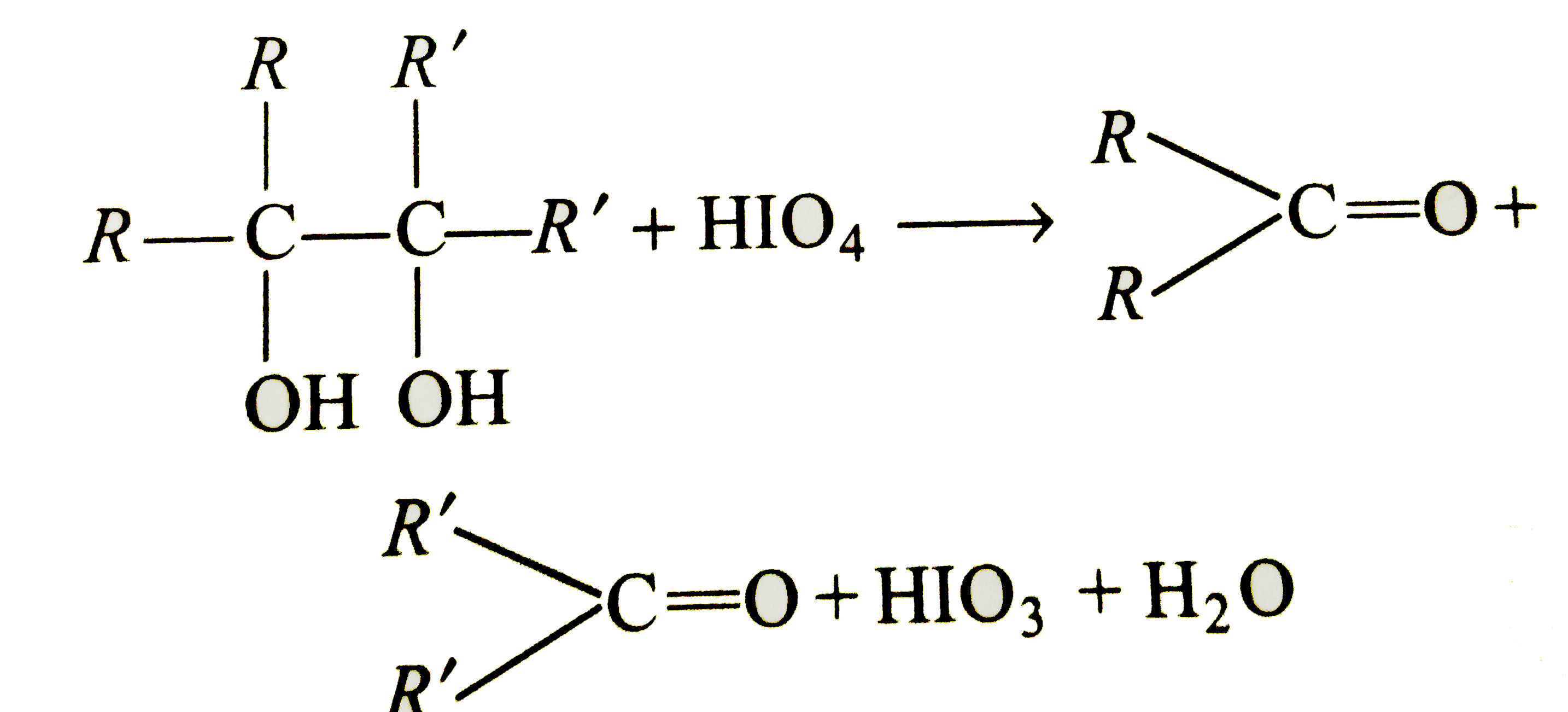
Cyclic diols react to give dicarbonyl compounds. The reactions are faster when the hydroxyl gorups are cid than when they are trans but both stereoisomers are oxidised by periodic acid. Periodic acid cleavage of vicinal diols is often used for analytic purposes as an aid in structure determination. By identifying the carbonyl compounds produced, The constitution of the diol may be deduced.
Which of the following diols will be oxidised by `HIO_(4)` ?
View SolutionA reaction characteristic of vicinal diols is their oxidative cleavage on treatment with periodic acid `(HIO_(4))`. The carbon-carbon bond of the vicinal diol uinit is broken and two carbonyl groups result. Periodic acid is reduced to iodic acid `(HIO_(3))`
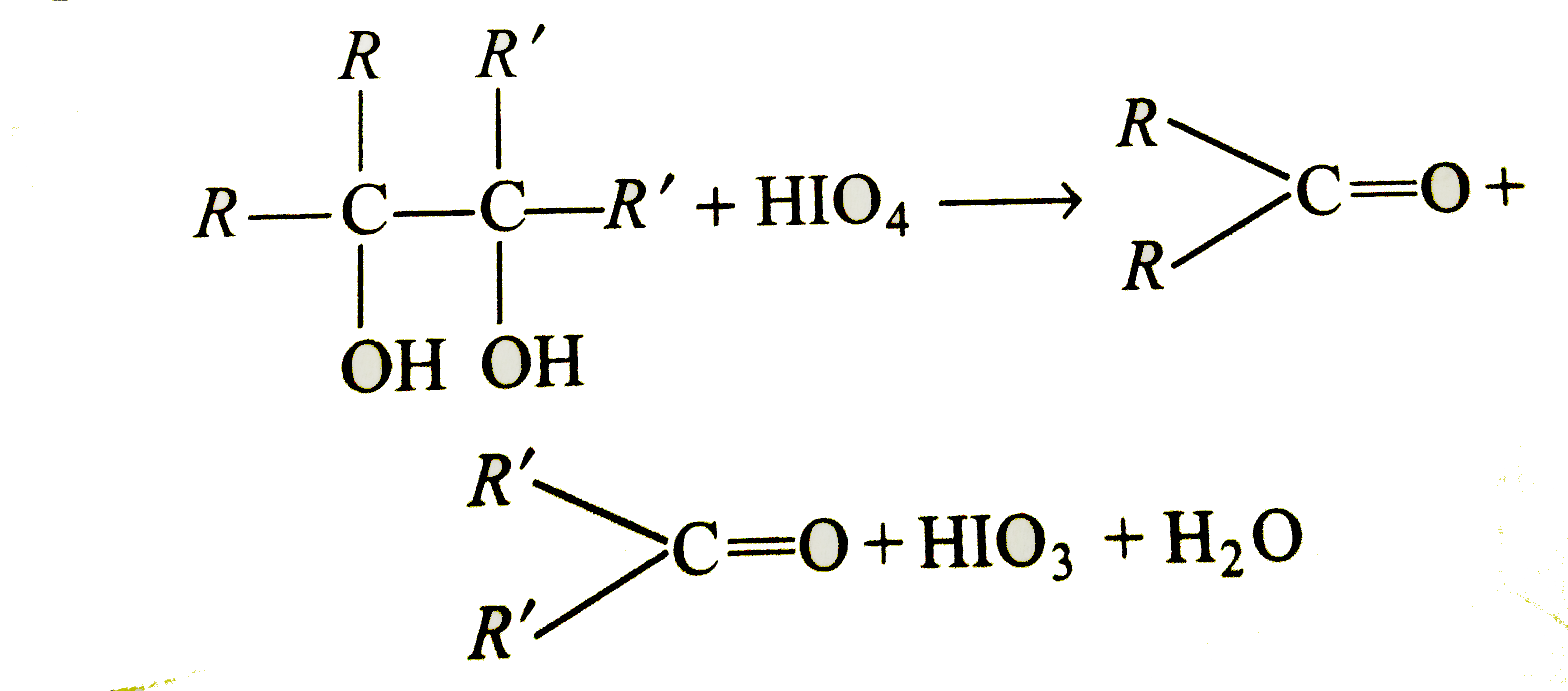
Cyclic diols react to give dicarbonyl compounds. The reactions are faster when the hydroxyl gorups are cid than when they are trans but both stereoisomers are oxidised by periodic acid. Periodic acid cleavage of vicinal diols is often used for analytic purposes as an aid in structure determination. By identifying the carbonyl compounds produced, The constitution of the diol may be deduced.
Which of the following products is/are obtained when glycerol is treated with `HIO_(4)` ?
View SolutionA reaction characteristic of vicinal diols is their oxidative cleavage on treatment with periodic acid `(HIO_(4))`. The carbon-carbon bond of the vicinal diol uinit is broken and two carbonyl groups result. Periodic acid is reduced to iodic acid `(HIO_(3))`
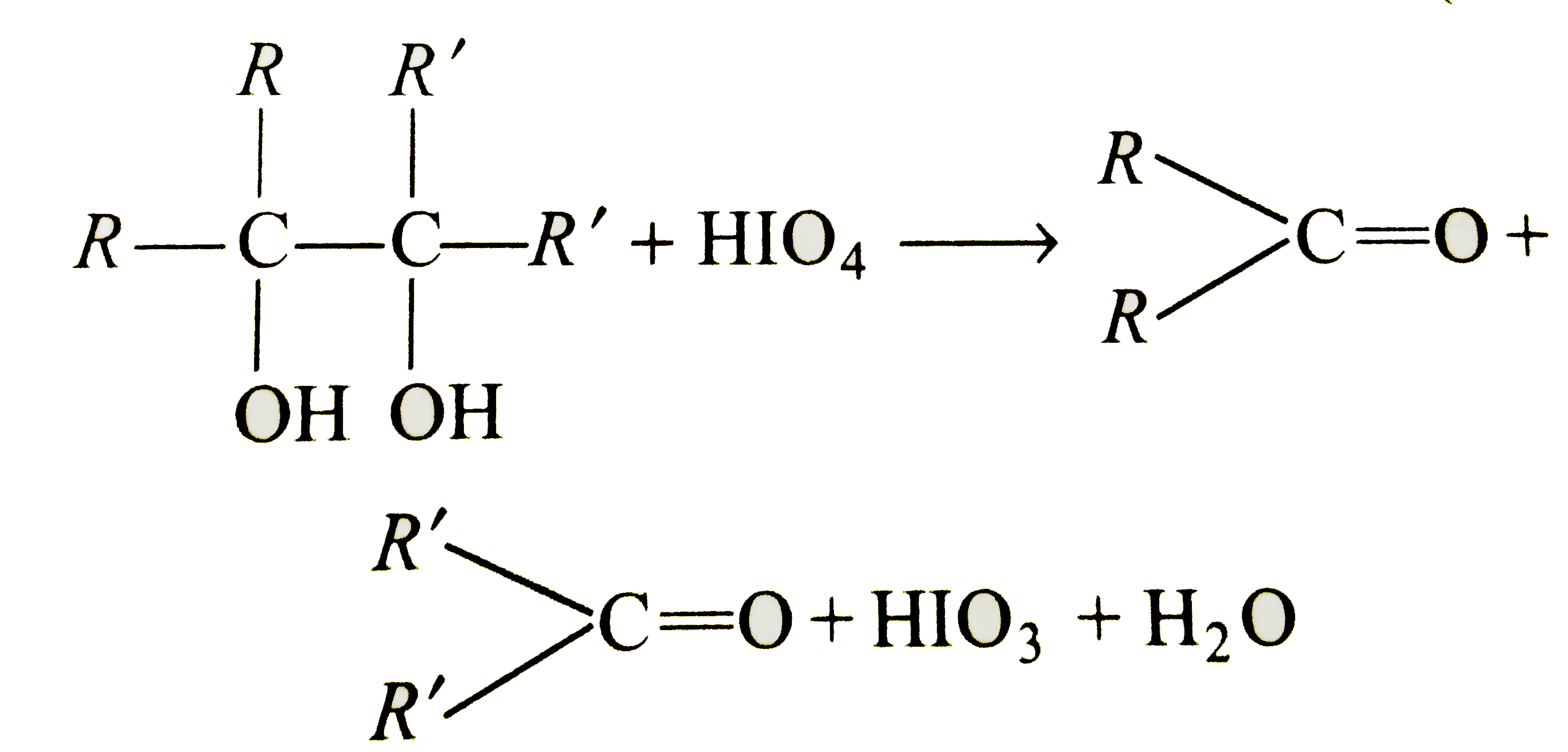
Cyclic diols react to give dicarbonyl compounds. The reactions are faster when the hydroxyl gorups are cid than when they are trans but both stereoisomers are oxidised by periodic acid. Periodic acid cleavage of vicinal diols is often used for analytic purposes as an aid in structure determination. By identifying the carbonyl compounds produced, The constitution of the diol may be deduced.
When arabinose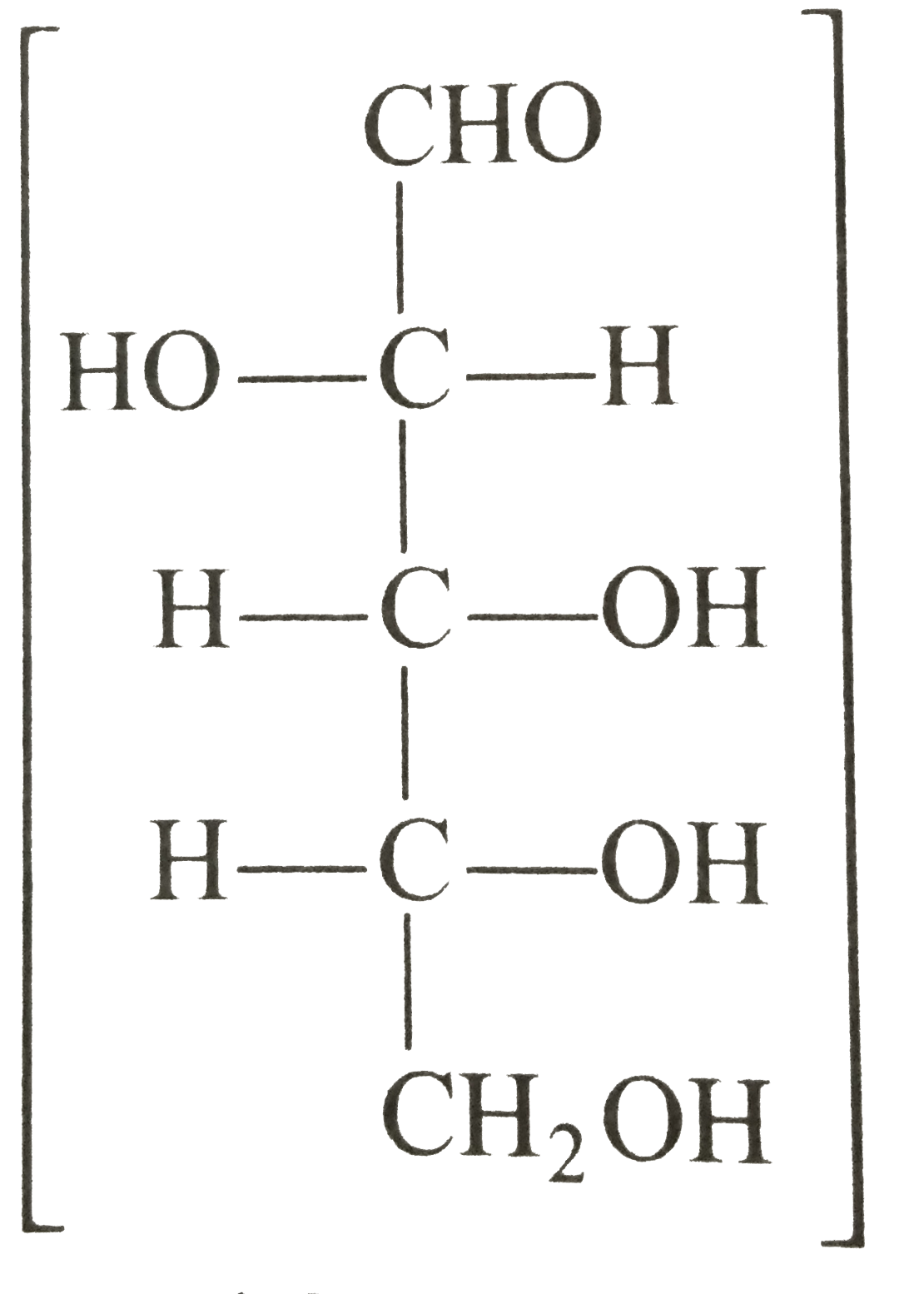 is oxidised by `HIO+_(4)`, then formaldehyde and formic acid are obtained. Number of molecules of formic acid and formaldehyde obtained respecitively are `:`
is oxidised by `HIO+_(4)`, then formaldehyde and formic acid are obtained. Number of molecules of formic acid and formaldehyde obtained respecitively are `:`
View Solution
LINKED COMPREHENSION Passage 1 questions and complete solutions for chapter ALCOHOLS, PHENOLS AND ETHERS of G.R. BATHLA & SONS CHEMISTRY (HINGLISH) of Class 12
All Exercises from OP TANDON Class 12 CHEMISTRY ALCOHOLS, PHENOLS AND ETHERS
- (C )ETHERS
- ASSERTION-REASON
- BRAI STORMING PROBLEMS
- ETHERS
- ETHERS Passage 6
- Ethers SET1:
- ILLUSTRATION OF OBJECTIVE QUESTINS
- LINKED COMPREHENSION Passage 1
- Matching Type
- MATRIX -MATCH
- OBJECTIVE QUESTIONS (LEVEL-A)
- OBJECTIVE QUESTIONS (LEVEL-B)
- passage 2
- Passage 3
- Passage 4
- Passage 5
- Passage 7
- PHENOLS
- PROBLEM
- PROBLEM FOR PRACTICE
- PROBLEMS BASED ON STRUCTURE AND PROPERTIES
- SET II
- SETII
- SINGLE INETER ANSWER TYPE QUESTIONS / ALCOHOLS AND PHENOLS
- Some SOLVED PROBLEMS